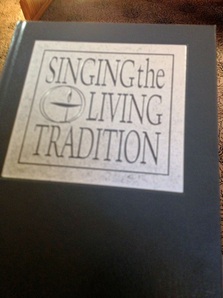Our Beliefs

Mission
The All Souls Unitarian Universalist congregation of Bellville is a community of active, open-minded and welcoming people who celebrate their diversity as they encourage and support each other to fearlessly and passionately search for truth and meaning.
Beliefs
Unitarian Universalism is a faith tradition which encourages each individual to develop a personal faith. It draws from many different religions, in the belief that no one religion has all the answers and that most have something to teach us. From Judeo-Christian heritage, we take the teachings of the Bible and Jesus. From Buddhism we take the power of meditation. From Judaism we take the belief that working together we can achieve peace and justice. From Native American and other earth-centered traditions we take respect for the earth and reverence for natural cycles. From Humanism, we take the belief in reason and direct experience of the sacred.
Unitarian Universalism is a way of being religious rather than embracing a specific religious doctrine. For us, religion is an ongoing search for meaning, purpose, value and spiritual depth in one’s life. We believe that individuals are entitled to make their own search, and that not all persons are going to share the same beliefs. We believe there is wisdom and value in most all religions, but that no one religion has all the answers. We believe in an inner harmony that will lead to ethical action.
Unitarian Universalists believe in individual responsibility to search for and form their own beliefs and as a result many of them may believe different things. What holds Unitarian Universalists together is not common belief, but common experience and a common approach to life.
Unitarian Universalists believe in the Golden Rule, loving our neighbors as ourselves, working for a better world, searching for truth with an open mind, using reason to help us explore religious ideas, and granting everyone the right to choose their own beliefs.
The Seven Unitarian Universalist Principles
We are among more than 2,000 congregations that as members of the Unitarian Universalist Association have agreed to abide by the following principles in how we go about our work as a religious movement.
We, the member congregations of the Unitarian Universalist Association, covenant to affirm and promote:
- The inherent worth and dignity of every person;
- Justice, equity and compassion in human relations;
- Acceptance of one another and encouragement to spiritual growth in our congregations;
- A free and responsible search for truth and meaning;
- The right of conscience and the use of the democratic process within our congregations and in society at large;
- The goal of world community with peace, liberty, and justice for all;
- Respect for the interdependent web of all existence of which we are a part.
The Six Sources
The living tradition we share draws from many sources. They include:
Direct experience of that transcending mystery and wonder, affirmed in all cultures, which moves us to a renewal of the spirit and an openness to the forces which create and uphold life.
Words and deeds of prophetic women and men which challenge us to confront powers and structures of evil with justice, compassion and the transforming power of love.
Wisdom from the world’s religions which inspires us in our ethical and spiritual life.
Jewish and Christian teachings which call us to respond to God’s love by loving our neighbors as ourselves.
Humanist teachings which counsel us to heed the guidance of reason and the results of science, and warn us against idolatries of the mind and spirit.
Spiritual teachings of Earth-centered traditions which celebrate the sacred circle of life and instruct us to live in harmony with the rhythms of nature.
(Source: Unitarian Universalist Association)
